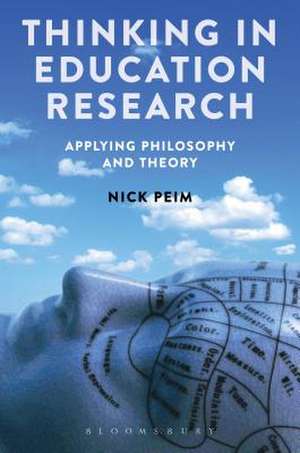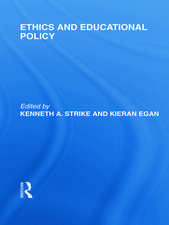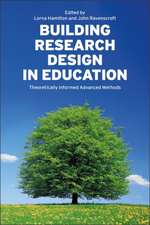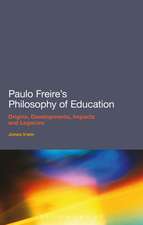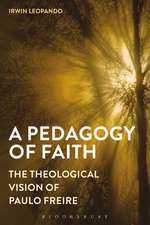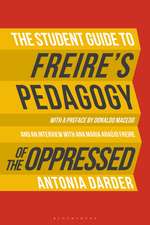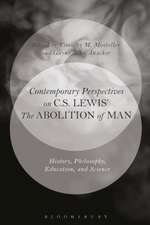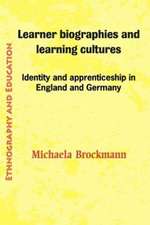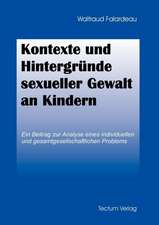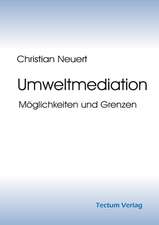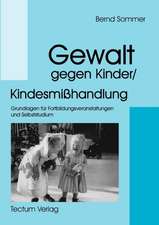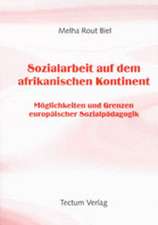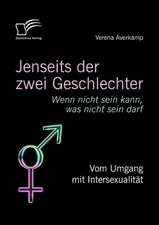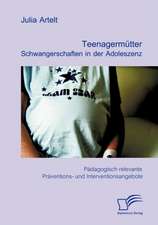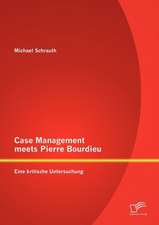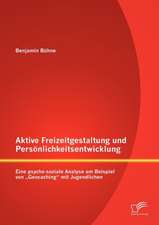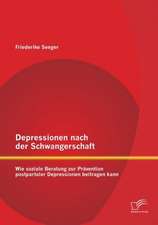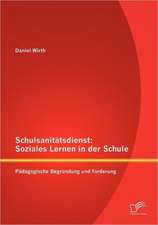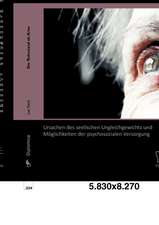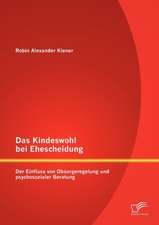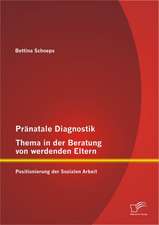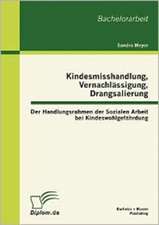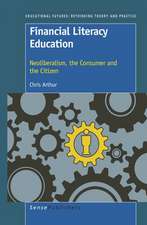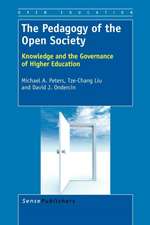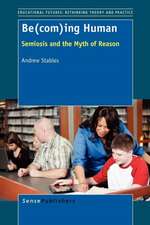Thinking in Education Research: Applying Philosophy and Theory
Autor Dr Nick Peimen Limba Engleză Paperback – 7 mar 2018
| Toate formatele și edițiile | Preț | Express |
|---|---|---|
| Paperback (1) | 187.26 lei 6-8 săpt. | |
| Bloomsbury Publishing – 7 mar 2018 | 187.26 lei 6-8 săpt. | |
| Hardback (1) | 570.28 lei 6-8 săpt. | |
| Bloomsbury Publishing – 7 mar 2018 | 570.28 lei 6-8 săpt. |
Preț: 187.26 lei
Preț vechi: 215.74 lei
-13% Nou
Puncte Express: 281
Preț estimativ în valută:
35.84€ • 38.91$ • 30.10£
35.84€ • 38.91$ • 30.10£
Carte tipărită la comandă
Livrare economică 23 aprilie-07 mai
Preluare comenzi: 021 569.72.76
Specificații
ISBN-13: 9781472591074
ISBN-10: 1472591070
Pagini: 296
Dimensiuni: 156 x 234 x 24 mm
Greutate: 0.45 kg
Editura: Bloomsbury Publishing
Colecția Bloomsbury Academic
Locul publicării:London, United Kingdom
ISBN-10: 1472591070
Pagini: 296
Dimensiuni: 156 x 234 x 24 mm
Greutate: 0.45 kg
Editura: Bloomsbury Publishing
Colecția Bloomsbury Academic
Locul publicării:London, United Kingdom
Caracteristici
Brief summaries of key philosophical positions allow those new to philosophy easy engagement with the ideas being introduced elsewhere in the chapters
Notă biografică
Nick Peim is Senior Lecturer in Education at the University of Birmingham, UK. He is the author of Critical Theory and the English Teacher (1993), and co-author of Introduction to Education Studies (2001) and Rethinking the Education Improvement Agenda (2011). He has taught for over ten years on research methods courses at the University of Birmingham, UK.
Cuprins
1. Introduction: What is the Role of Thinking?2. What is Philosophical about Research? 3. What is the Object? 4. What about the Role of the Researcher? 5. Is the Truth Out There?6. What about Time, Place and World?7. What is the Role of Narrative? 8. Why Does Language Matter? 9. New Bearings in Significance and Value?BibliographyIndex
Recenzii
The search for the validation of a particular paradigm of educational research is problematized by Nick Peim in the effort to identify a shift away from the hegemonic structure of the current empiricist paradigm under the rhetoric of an evidence-based goal. Shifting from a search for certainty in the form of standardized research protocols and the brute data that provide the paradigm its legitimacy requires intentional inquiry into the research project. Thinking in Education Research provides a foundation for this renewal and rethinking of research.
Throw away your handbooks, abandon the well-trodden avenues of educational research, and give upon the idea that education must, before all else, be improved. This book is a rare invitation to think the unthinkable in educational research.
Throw away your handbooks, abandon the well-trodden avenues of educational research, and give upon the idea that education must, before all else, be improved. This book is a rare invitation to think the unthinkable in educational research.
